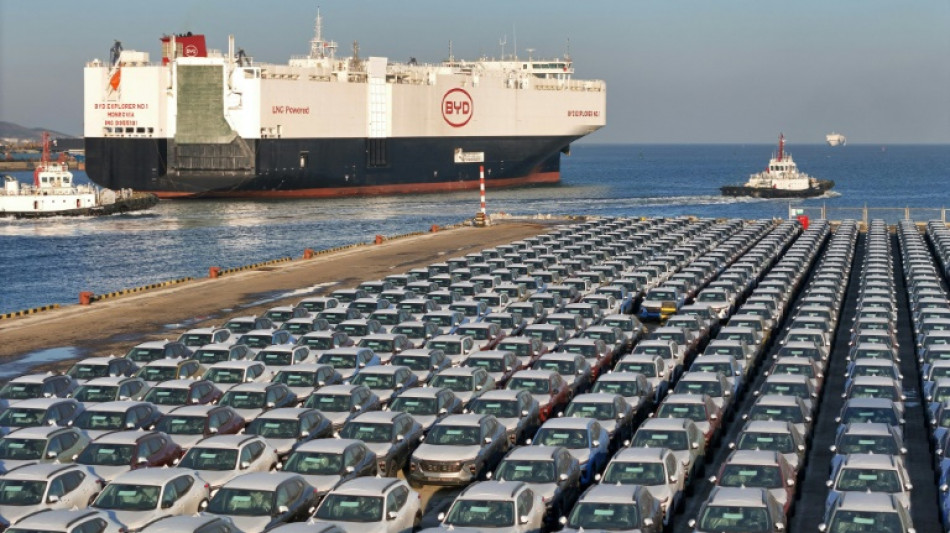
-
 Kremlin says agreed to halt strikes on Kyiv until Sunday
Kremlin says agreed to halt strikes on Kyiv until Sunday
-
Carrick calls for calm after flying start to Man Utd reign

-
 Djokovic to meet Alcaraz in Melbourne final after five-set marathon
Djokovic to meet Alcaraz in Melbourne final after five-set marathon
-
Italian officials to testify in trial over deadly migrant shipwreck

-
 Iran says defence capabilities 'never' up for negotiation
Iran says defence capabilities 'never' up for negotiation
-
UN appeals for more support for flood-hit Mozambicans

-
 Lijnders urges Man City to pile pressure on Arsenal in title race
Lijnders urges Man City to pile pressure on Arsenal in title race
-
Fulham sign Man City winger Oscar Bobb

-
 Strasbourg's Argentine striker Panichelli sets sights on PSG, World Cup
Strasbourg's Argentine striker Panichelli sets sights on PSG, World Cup
-
Jesus 'made love': Colombian president irks Christians with steamy claim

-
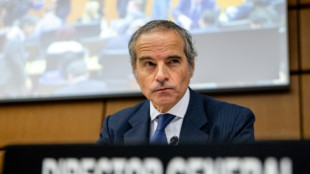 IAEA board meets over Ukraine nuclear safety concerns
IAEA board meets over Ukraine nuclear safety concerns
-
Eurozone growth beats 2025 forecasts despite Trump woes
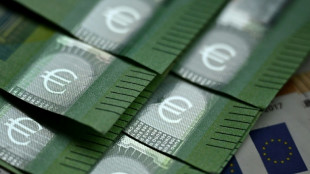
-
 Dutch PM-elect Jetten says not yet time to talk to Putin
Dutch PM-elect Jetten says not yet time to talk to Putin
-
Social media fuels surge in UK men seeking testosterone jabs
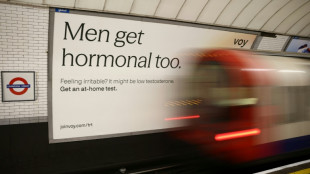
-
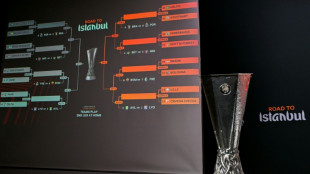 Forest face Fenerbahce, Celtic draw Stuttgart in Europa League play-offs
Forest face Fenerbahce, Celtic draw Stuttgart in Europa League play-offs
-
US speed queen Vonn crashes at Crans-Montana, one week before Olympics

-
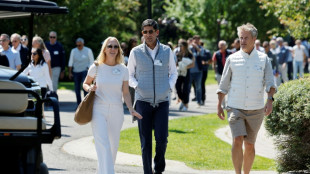 Trump nominates former US Fed official as next central bank chief
Trump nominates former US Fed official as next central bank chief
-
New Dutch government pledges ongoing Ukraine support

-
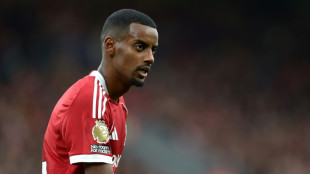 Newcastle still coping with fallout from Isak exit, says Howe
Newcastle still coping with fallout from Isak exit, says Howe
-
Chad, France eye economic cooperation as they reset strained ties
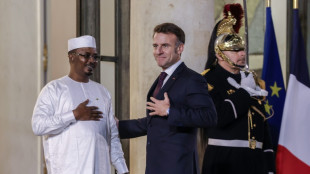
-
 Real Madrid to play Benfica, PSG face Monaco in Champions League play-offs
Real Madrid to play Benfica, PSG face Monaco in Champions League play-offs
-
Everton winger Grealish set to miss rest of season in World Cup blow

-
 Trump brands Minneapolis nurse killed by federal agents an 'agitator'
Trump brands Minneapolis nurse killed by federal agents an 'agitator'
-
Arteta focuses on the positives despite Arsenal stumble

-
 Fijian Drua sign France international back Vakatawa
Fijian Drua sign France international back Vakatawa
-
Kevin Warsh, a former Fed 'hawk' now in tune with Trump

-
 Zverev rails at Alcaraz timeout in 'one of the best battles ever'
Zverev rails at Alcaraz timeout in 'one of the best battles ever'
-
Turkey leads Iran diplomatic push as Trump softens strike threat

-
 Zelensky backs energy ceasefire, Russia bombs Ukraine despite Trump intervention
Zelensky backs energy ceasefire, Russia bombs Ukraine despite Trump intervention
-
'Superman' Li Ka-shing, Hong Kong billionaire behind Panama ports deal

-
 Skiing great Lindsey Vonn crashes at Crans-Montana, one week before Olympics
Skiing great Lindsey Vonn crashes at Crans-Montana, one week before Olympics
-
Slot warns Liverpool 'can't afford mistakes' in top-four scrap

-
 Paris show by late Martin Parr views his photos through political lens
Paris show by late Martin Parr views his photos through political lens
-
Artist chains up thrashing robot dog to expose AI fears

-
 Alcaraz outlasts Zverev in epic to reach maiden Australian Open final
Alcaraz outlasts Zverev in epic to reach maiden Australian Open final
-
French PM forces final budget through parliament

-
 French-Nigerian artists team up to craft future hits
French-Nigerian artists team up to craft future hits
-
Dutch watchdog launches Roblox probe over 'risks to children'

-
 Trump brands Minneapolis nurse shot dead by federal agents an 'agitator'
Trump brands Minneapolis nurse shot dead by federal agents an 'agitator'
-
Israel says killed 'three terrorists' in Gaza

-
 After Trump-fueled brawls, Canada-US renew Olympic hockey rivalry
After Trump-fueled brawls, Canada-US renew Olympic hockey rivalry
-
Eileen Gu - Olympic champion who bestrides rivals US, China

-
 Trump, first lady attend premier of multimillion-dollar 'Melania' documentary
Trump, first lady attend premier of multimillion-dollar 'Melania' documentary
-
US Senate eyes funding deal vote as government shutdown looms

-
 Cuddly Olympics mascot facing life or death struggle in the wild
Cuddly Olympics mascot facing life or death struggle in the wild
-
UK schoolgirl game character Amelia co-opted by far-right

-
 Anger as bid to ramp up Malaysia's football fortunes backfires
Anger as bid to ramp up Malaysia's football fortunes backfires
-
Panama court annuls Hong Kong firm's canal port concession

-
 Pioneer African Olympic skier returns to Sarajevo slopes for documentary
Pioneer African Olympic skier returns to Sarajevo slopes for documentary
-
Trump threatens tariffs on nations selling oil to Cuba

| VOD | -0.17% | 14.685 | $ | |
| RYCEF | -2.69% | 16 | $ | |
| RELX | -0.81% | 35.875 | $ | |
| CMSC | -0.21% | 23.645 | $ | |
| BTI | -0.13% | 60.13 | $ | |
| NGG | -0.1% | 84.965 | $ | |
| RIO | -2.64% | 92.68 | $ | |
| AZN | 0.39% | 92.95 | $ | |
| GSK | 1.21% | 51.275 | $ | |
| RBGPF | 1.65% | 83.78 | $ | |
| CMSD | 0.17% | 24.1 | $ | |
| JRI | 0.27% | 12.99 | $ | |
| BP | 0.42% | 38.2 | $ | |
| SCS | 0.12% | 16.14 | $ | |
| BCC | -1.57% | 78.93 | $ | |
| BCE | 0.14% | 25.52 | $ |

EU seeks roadblocks for Chinese EVs without sparking trade war
The EU faces a delicate balancing act as it prepares to rev up taxes on Chinese electric cars to protect European industry, while steering clear of a US-style showdown with Beijing that could spark a trade war.
Europe's automotive sector is the jewel in its industrial crown -- behind iconic brands from Mercedes to Ferrari -- but it faces an existential threat from the looming end of combustion engines and China's head start in the switch to electric.
When Brussels launched a probe last year into Chinese electric car subsidies, officials said they wanted to put the brakes on what they claimed were unfair practices undercutting Europe's car manufacturers.
Beijing reacted angrily at the time, crying protectionism.
The EU has until July 4 to order a provisional hike in import duties on Chinese electric vehicles (EVs) -- currently at 10 percent -- with the expectation it could make its move some time in June.
As anticipation builds, China has raised the temperature further with its own threats of duties. Europe's agriculture imports could be in the firing line.
Experts suggest Brussels could hike duties to between 20 and 30 percent -- enough to discourage but not fully deter Chinese exporters, which research firm Rhodium Group estimates would require 40 to 50 percent tariffs.
That is a calculated move by European Commission President Ursula von der Leyen -- who stressed the EU was planning "targeted" action, after the United States quadrupled its own duties on Chinese electric cars to 100 percent.
The EV standoff comes in a context of rising trade tensions between Beijing and Western countries -- which are investing billions in the energy transition and accuse the Asian giant of unfair competition on everything from wind turbines to solar panels.
But the EU is carefully calibrating its steps.
"I don't think anyone in Brussels wants a full-blown trade war or technology war," said Jacob Gunter, senior analyst at China-focused think tank MERICS.
"But there's a growing recognition that something needs to change in the trade and technology relationships between the EU and China."
- Different EU, US approaches -
China is the world's biggest car exporter -- and Europe is a critical market.
EU imports of EVs from China mushroomed from around 57,000 in 2020 to around 437,000 in 2023, the US-based Peterson Institute for International Economics said.
Their value rose over the same period from $1.6 billion to $11.5 billion, according to Rhodium Group.
Whereas the United States appears ready to risk a trade conflict with China, Elvire Fabry of think tank the Jacques Delors Institute sees key differences in Europe's strategy.
Washington's move is "based on a political priority to isolate China and slow down its technological development", she argued.
"The European approach is... based on facts established by an investigation" and aims to restore fair competition, Fabry said.
- Green transition risk -
Crucially, Brussels must also balance concerns about Chinese imports with its targets for slashing carbon emissions.
The EU wants many more Europeans driving electric cars as it prepares to outlaw the sale of new fossil fuel-powered cars from 2035.
China has sought to leverage this point.
"These measures will only harm the interests of their own consumers and affect the global green transformation and efforts to tackle climate change," He Yadong, China's commerce ministry spokesperson, said this month.
At home too, the EU's anti-subsidy probe has fuelled divisions between member states: it is pushed by Paris and backed by French automakers, but Germany and Sweden both expressed reservations.
Not all European manufacturers are on board either, with German carmakers opposing the probe.
- 'Politically driven' -
The EV investigation, one of the bloc's biggest to date against China, provoked Beijing's ire, especially since it came at the initiative of Brussels -- rather than being triggered by a formal complaint.
MERICS' Gunter said he expected a "pretty sharp response".
China gave a taste of what retaliatory moves it could take by launching an anti-dumping probe in January into brandy imported from the EU.
Beijing appeared to up the ante last week with reports in state-owned tabloid Global Times on potential tit-for-tat moves, like targeting pork imports.
And the China Chamber of Commerce to the EU (CCCEU) referred to a legal expert cited in Chinese media saying that European wine and dairy products could find themselves caught in the crossfire.
The trade group told AFP that the probe "appears to have been politically driven, lacking substantial complaints from European industries that adequately represent manufacturers' interests".
The EU will have to decide on any final duties by November.
burs-raz/ec/imm/smw
O.Schlaepfer--VB



